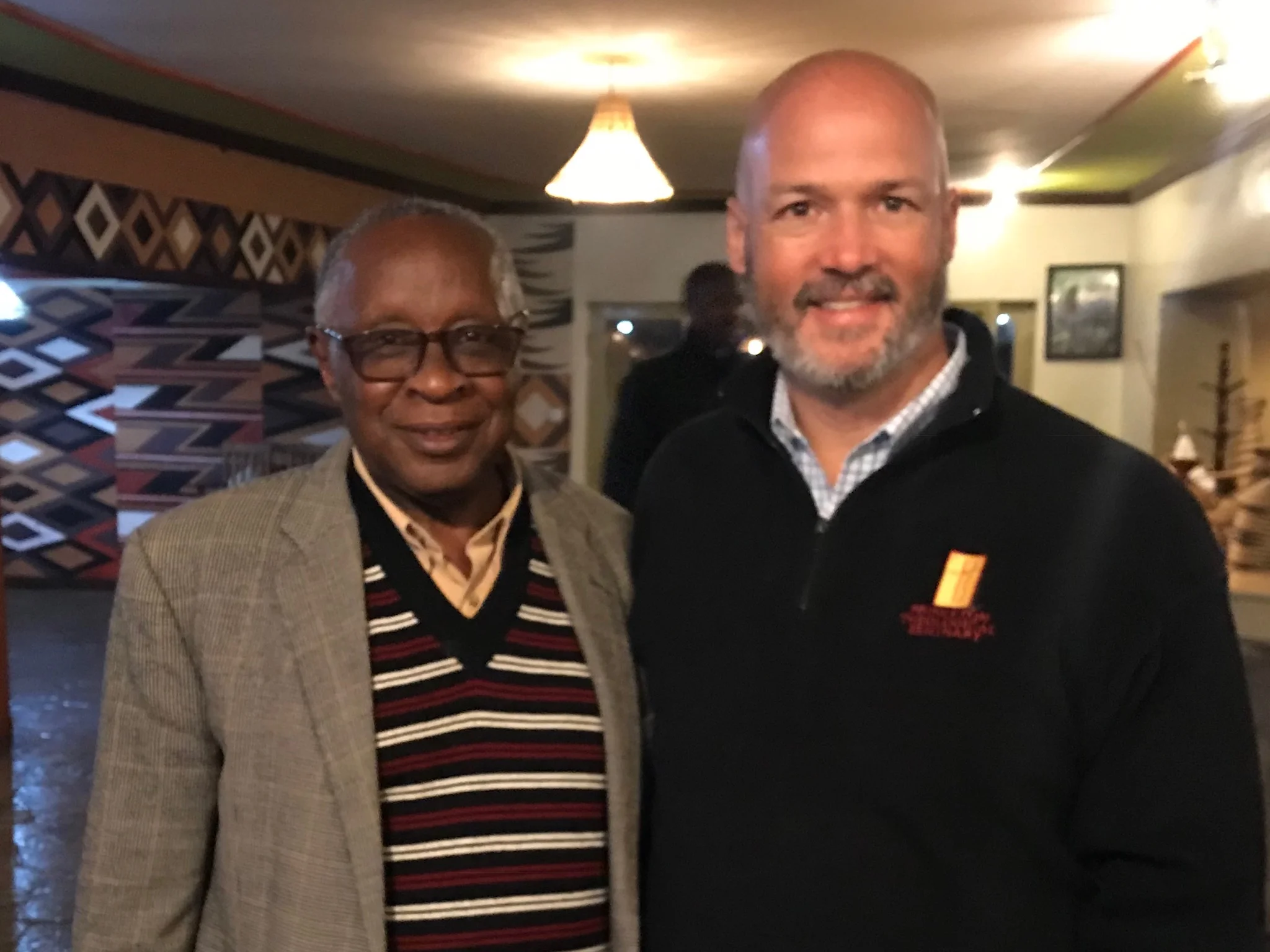Readings for the day: Isaiah 50-53
Perhaps it is providential I am reading about the Suffering Servant on the very day I am to meet and have dinner with Bishop John Rucyahana of Rwanda. Bishop John writes and speaks powerfully on the subject of the genocide that horrified a watching world in 1994. He wrestles deeply with the question, “Where was God as over one million people were being slaughtered?” And he comes out the other side with this answer, “Where was God when a million innocent people were being butchered? Where was God when priests and pastors helped massacre the people in their churches? I’ll tell you where God was. He was alongside the victims lying on the cold stone floor of the cathedral. He was comforting a dying child. He was crying at the altar. But He was also saving lives. Many were saved by miracles. God does not flee when evil takes over a nation...God is the giver of eternal life, and He can bring great good out of any situation. He raises the dead; He can also raise the broken. He can restore their hearts and minds and lift their spirits to renewed life. In my country God is doing this today by the thousands. There is so much pain here, so many real tears, and so much guilt that our ministry is like preaching hope from the top of a pile of bones. From atop a mountain of mutilated bodies, we are stretching a hand upward to proclaim a message of transformation and recovery.” (The Bishop of Rwanda )
I cannot fathom the journey so many in this country have endured. The horror. The pain. The suffering. It’s immense. Indescribable. Beyond words. And yet, I would argue the forgiveness and reconciliation they have found is equally, if not more, profound. The other day I asked a woman if she was ethnic Tutsi or Hutu. “Neither” was her reply. “Here we are all Rwandan.” She went on to describe some of the hell she and her family had been through and the freedom they had found through forgiveness. Only Jesus could provide such grace. Only Jesus could give them such strength. How can I be so sure? Because Jesus knows the depths of human suffering. He experienced the absolute worst this world has to offer. He knows evil intimately and through his death defeats it once and for all. Listen to how the ancient prophet Isaiah describes the suffering of Jesus, some hundreds of years before His death and resurrection.
“He was despised and rejected by men, a man of sorrows and acquainted with grief; and as one from whom men hide their faces he was despised, and we esteemed him not. Surely he has borne our griefs and carried our sorrows; yet we esteemed him stricken, smitten by God, and afflicted. But he was pierced for our transgressions; he was crushed for our iniquities; upon him was the chastisement that brought us peace, and with his wounds we are healed...He was oppressed, and he was afflicted, yet he opened not his mouth; like a lamb that is led to the slaughter, and like a sheep that before its shearers is silent, so he opened not his mouth...Yet it was the will of the Lord to crush him; he has put him to grief; when his soul makes an offering for guilt, he shall see his offspring; he shall prolong his days; the will of the Lord shall prosper in his hand...Therefore I will divide him a portion with the many, and he shall divide the spoil with the strong, because he poured out his soul to death and was numbered with the transgressors; yet he bore the sin of many, and makes intercession for the transgressors.” (Isaiah 53:3-5, 7, 10, 12)
The same God who bore the sins of many. The same God who makes intercession for the transgressors. The same God who loved His enemies so much He died for them is the same God who is alive and active in Rwanda. Bringing about reconciliation through forgiveness. Preaching hope from atop a pile of His own bones. From atop His own mutilated body, He is stretching a hand upward to proclaim a message of transformation and grace. It’s truly incredible and it is available to all who would place their trust in Him. Friends, if God can bring about reconciliation between the victims and perpetrators of genocide in Rwanda can He not accomplish the same in our lives as well? Can He not bring together husband and wife on the verge of divorce? Can He not bring back together children and parents who’ve been estranged? Can He not help Democrats and Republicans find common ground? Or heal the racial tensions in our own country? These are just a few of the problems we face that only the gospel can solve.
What is required? Repentance. Confession. Truth-telling. Courage. Faith. Humility. Most of all, a deep and abiding and enduring trust in the power of the gospel.
